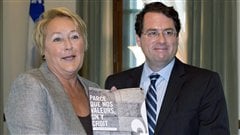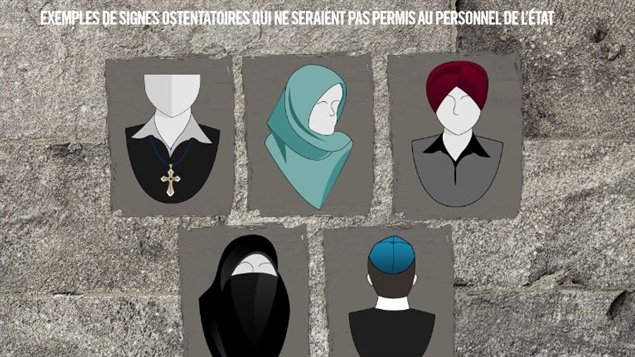One issue was particularly contentious in the province of Quebec, in 2013: a ban on overt religious symbols.
The ruling Parti Québécois (PQ) doesn’t want public and parapublic sector employees to wear the hijab, the kippah, the turban or large crosses at work.
Its proposed secular charter, tabled as Bill-60, ignited a fiery debate.

The government has continued to defend the charter since unveiling it in August and December 20 it offered party supporters munitions to defend it too during the holidays, should the subject come up at the dinner table.
The PQ produced a downloadable 7-page question-and-answer guide that provides arguments in favour of what is officially called the Charter affirming the values of State secularism and religious neutrality and of equality between women and men, and providing a framework for accommodation requests.
The National Assembly will hold a consultation and public hearings on the proposed law, beginning January 14. Groups and individuals who wanted to have their opinion heard had until December 20 to send in a brief explaining their position.
Many organizations spoke out against the charter, like those representing the Jewish and Muslim communities, as well as Concordia University, the McGill University Health Centre (MUHC) and the largest anglophone school board in the province. They call the charter “divisive” and “discriminatory” and vow to try to prevent the implementation of the charter, if it’s adopted in its current form.
They would ask the court to determine whether or not the charter violates constitutional rights. Quebec’s and Canada’s Charters of Rights and Freedoms guarantees a person’s right to freedom of religion.







For reasons beyond our control, and for an undetermined period of time, our comment section is now closed. However, our social networks remain open to your contributions.